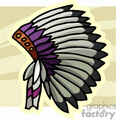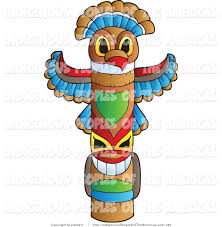 |
| William Galbreath 1794 - 1877 |
Born in Westmoreland county, Pennsylvania, June 18, 1794. Settled in Putnam, county Ohio, November 16 1834. Died Sept. 21, 1877. Interred in the Old Cemetery at Ottawa.
Now about some incidents. I left Fort Findlay with my family, with a team of two horses at the tongue, a yoke of oxen in the middle and a span of horses in the lead. I had to cut a good part of the road though the brush, which took nearly two days before I reached Ottawa. You may guess how the roads were when I tell you that in making a turn the mud was so deep that my lead horses fell down and the off horse fell over him, and when they got up the leader was on the off side. When we land in Ottawa we went into a red man's house and there was not a white family any where about Ottawa at that time. The next morning after I landed, eight or ten Indians came and claimed the house and, in a friendly way, we had some talk over it. Finally they agreed that if I would give them bread and meat I could keep the house. I did so, and they eat like hound dogs. Next day they came back, but as I had brought with me from Findlay a man who was used to their ways, he drove them off. In a few days a man brought to Ottawa three or four barrels of whisky to trade to the Indians for furs. The Indians found out that the whisky was here, and during the night one of them came with a tin bucket to steal the precious article. In his endeavors to get it he let the barrel fall on his bucket, with the bung down, and all the whisky ran out on the ground. Next morning a drove of Indians squaws and pappooses came with little tins to dip up the whisky which was in the horse tracks on the ground. The squaws soon began to get pretty merry and commenced singing. The white man held up his bucket and asked,"Who owns this?" Indian Tom said, "Caw, caw!" and reached his for the bucket. The white man threw him the bucket. They all got drunk, but I think two or three of the squaws got the biggest share. Not long after this, Sycamore and his squaw, who had a pappoose, got into a quarrel, when he pulled out his knife and cut the child in two. Each one had a half and they settled the quarrel.
Indian Tom
Tom was an Indian that would steal, so they concluded to put him out of the way. One evening The Auglaize river was raising very fast, and they took him down in a low bottom and tied his hands and feet to stakes that were driven into the ground, thinking the river would raise over him before morning and drown him. But there was a young squaw who got a hint of it and went down in the night and cut him loose. The next morning the water was three or four feet deep, where Tom had been tied. About noon Tom was seen at some distance peeping from behind a tree. He returned and told the company that he was still alive. Tom finally went west with the Ottawa tribe.
Pedan And The Dutchman
Pedan came to my house and called; "Big man, big man. Man lost in the bush!" pointing toward Plum creek. "We tried to fetch him to Ottawa---he no come, he stagger and fall, he soon go dead, he no white man, he dutchman." So I sent word to the Catholic Priest and he sought and found him.

Tom Slighted And How He Retaliated.
One night I heard the Indians coming, and being in bed I got up. They rode up and yelled, "Big man, whisky!" I went to the road and they had a porcupine skin full of whisky. They drew out a bottleful by means of a spile. The chief took the bottle and came up to me. Pointing towards me, he said "You good man, me good man, he good man, he good man," pointing to all the circle, with the exception of Tom, and drank, and in like manner each drank, repeating the chief's words and leaving out Tom. I pretended to drink to all, including Tom; whereupon Tom came up and took the bottle and said to me, "You good man, me good man," and drank slighting the rest of the company. Tom was charged with being a thief. On account of this they treated him so.
Jim Hound.
One day I said to Jim Hound: "Who was your Captain in the war?" " Harrison" he replied. Whereupon a Chief standing near by spoke up saying; "Jim you lie, Proctor your Captain!" Jim hung his head.

Tom was an Indian that would steal, so they concluded to put him out of the way. One evening The Auglaize river was raising very fast, and they took him down in a low bottom and tied his hands and feet to stakes that were driven into the ground, thinking the river would raise over him before morning and drown him. But there was a young squaw who got a hint of it and went down in the night and cut him loose. The next morning the water was three or four feet deep, where Tom had been tied. About noon Tom was seen at some distance peeping from behind a tree. He returned and told the company that he was still alive. Tom finally went west with the Ottawa tribe.
Pedan And The Dutchman
Pedan came to my house and called; "Big man, big man. Man lost in the bush!" pointing toward Plum creek. "We tried to fetch him to Ottawa---he no come, he stagger and fall, he soon go dead, he no white man, he dutchman." So I sent word to the Catholic Priest and he sought and found him.

Tom Slighted And How He Retaliated.
One night I heard the Indians coming, and being in bed I got up. They rode up and yelled, "Big man, whisky!" I went to the road and they had a porcupine skin full of whisky. They drew out a bottleful by means of a spile. The chief took the bottle and came up to me. Pointing towards me, he said "You good man, me good man, he good man, he good man," pointing to all the circle, with the exception of Tom, and drank, and in like manner each drank, repeating the chief's words and leaving out Tom. I pretended to drink to all, including Tom; whereupon Tom came up and took the bottle and said to me, "You good man, me good man," and drank slighting the rest of the company. Tom was charged with being a thief. On account of this they treated him so.
Jim Hound.
One day I said to Jim Hound: "Who was your Captain in the war?" " Harrison" he replied. Whereupon a Chief standing near by spoke up saying; "Jim you lie, Proctor your Captain!" Jim hung his head.
No comments:
Post a Comment